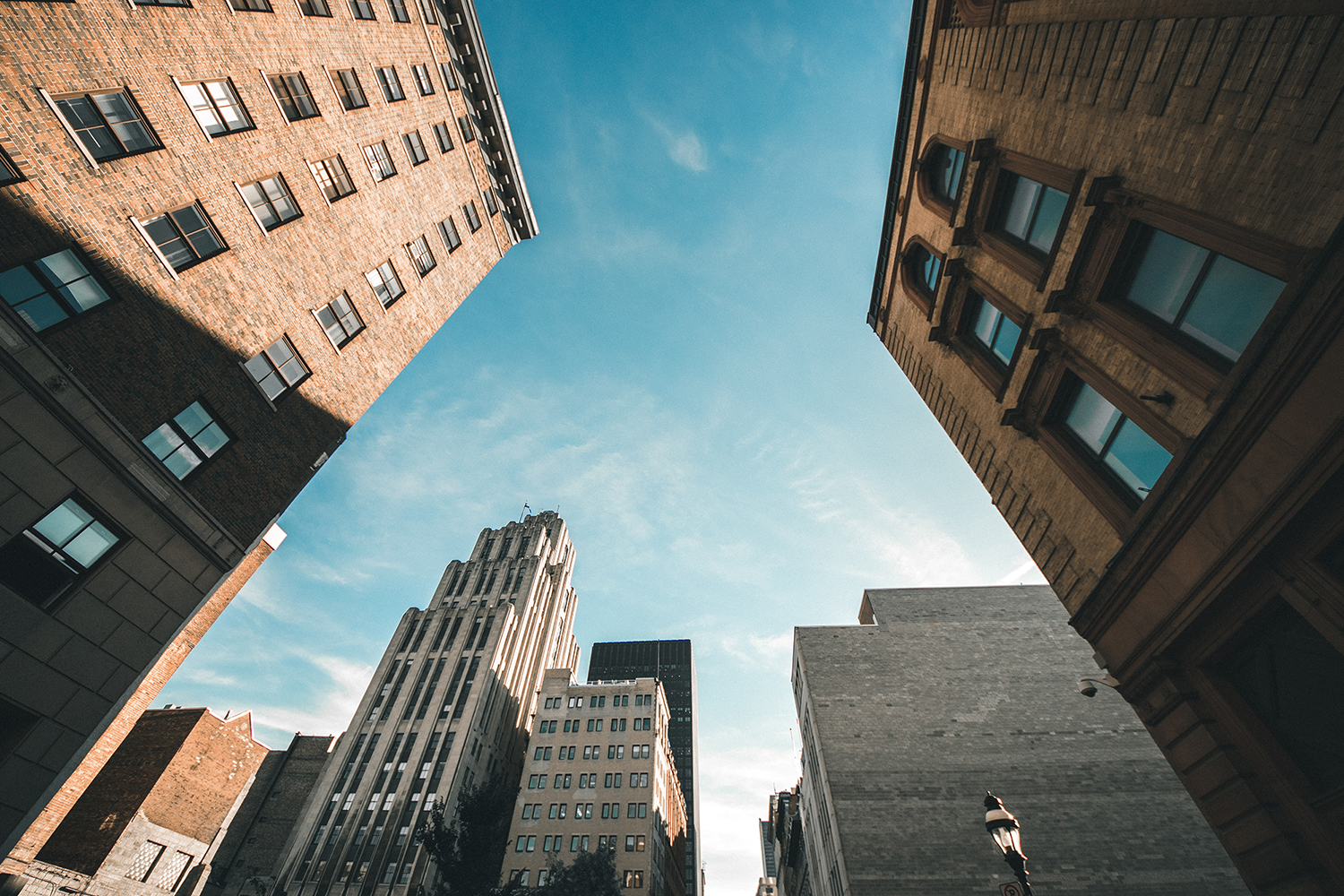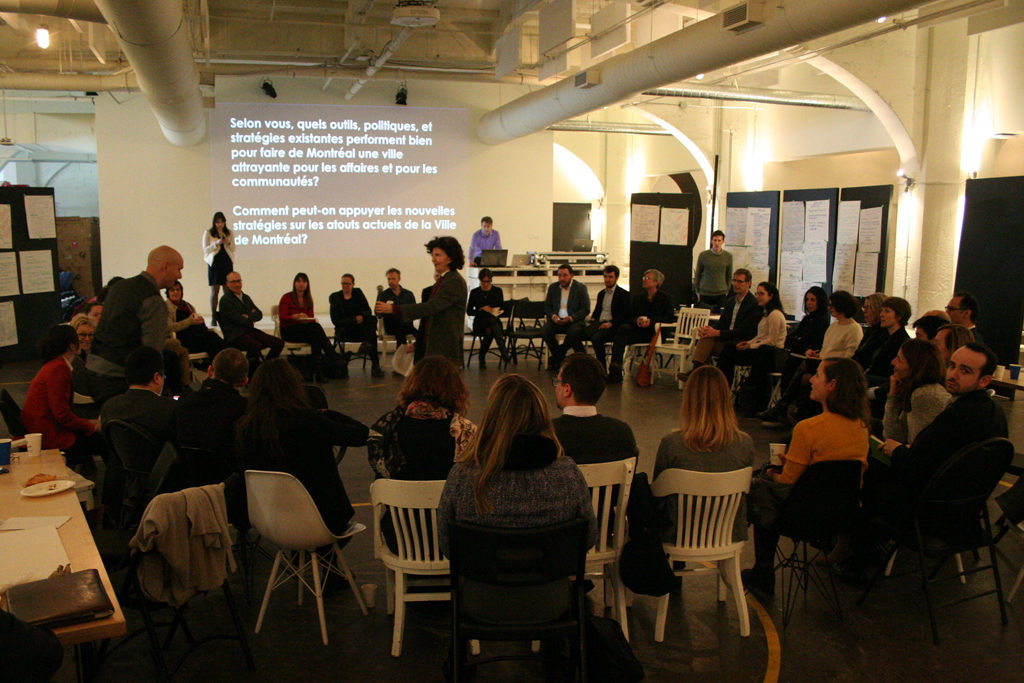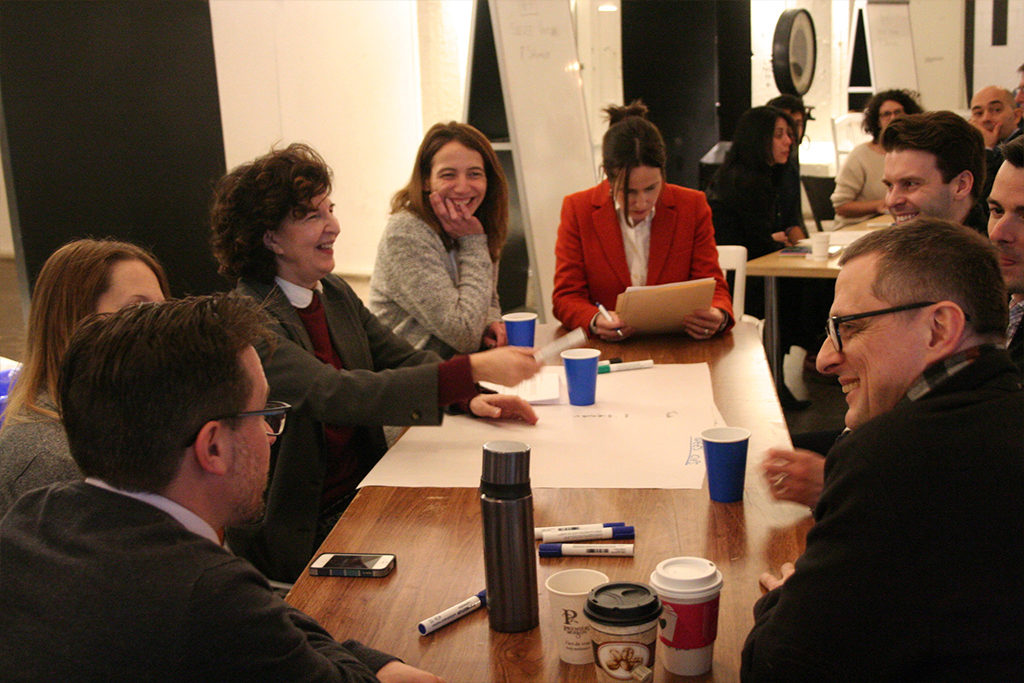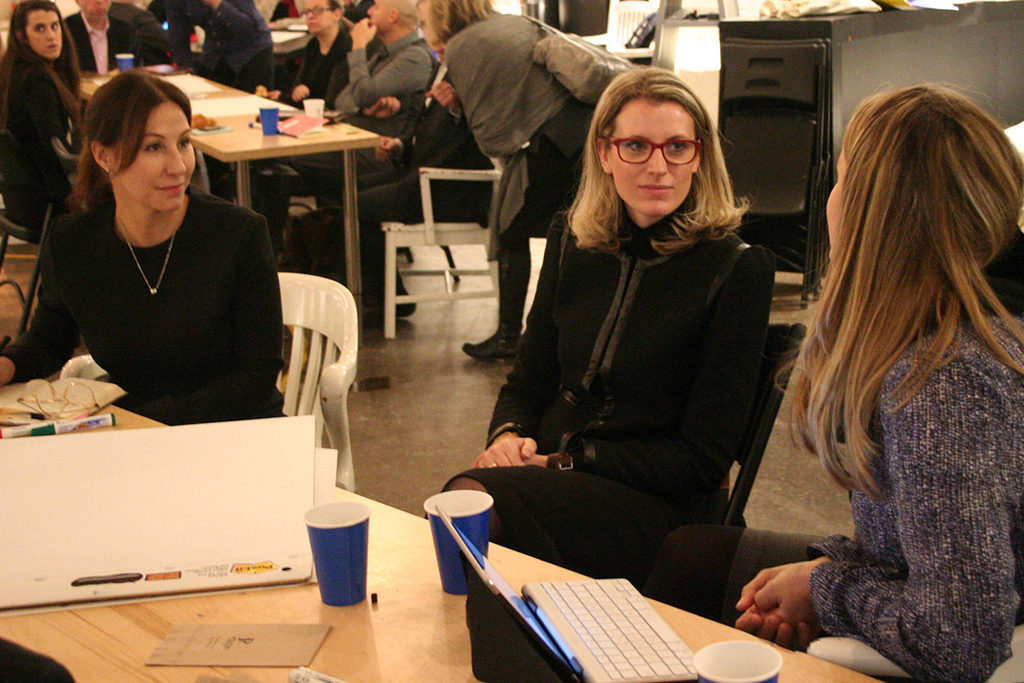
How to Make Montréal a Magnet for Talent and Place to do Business
February 27, 2017 — Blog
The New Cities Foundation, in partnership with Living Lab Montréal and Made in Montréal, are hosting a series of roundtable discussions featuring a cross-section of Montréal’s leading actors and creative minds. The second roundtable in this series took place at Sid Lee’s 8 rue Queen on February 14, 2017 on the subject Attractiveness of Montréal.
Each city has unique, attractive qualities that set it apart from its neighbours. While sometimes hard to define, a city’s overall attraction is a factor in bringing in talented new residents, retaining home-grown expertise, and drawing interest from the business community, tourism, and, ultimately, new investment.
Montréal is a city replete with je ne sais quoi, its entrepreneurial spirit, knowledge economy and cultural scene are all highlighted as factors that set the city apart and contribute to Montrealers high quality of life. Meanwhile, the population is bilingual, educated, multicultural and socially-minded. In many ways, Montréal is also an eccentric city, one often considered on the margins politically, geographically and linguistically.
In considering the city — and working towards making it more attractive to both newcomers and existing communities — we must not only look at the positive side of the equation. Engaging in cross-sector discussion has facilitated acknowledging the challenges and impediments that Montréal faces in an effort to formulate a long-term vision and new strategies for its desired growth.
These considerations led the discussion during a recent roundtable, co-hosted by NewCities, Living Lab Montréal and Made in Montréal, and featuring dozens of Montrealers from the private and public sectors, academia and civil society. The conversation centred on enhancing (and preserving) the attractivity of Montréal, by focusing on three central questions.

Montréal: Not just another pretty city
What makes a city an attractive place for residents and businesses alike? The roundtable brought together a diverse group of private and public sector actors to collaborate and explore strategies to further enhance Montréal’s current strengths and to identify areas for improvement.
Participants identified many positive aspects of the city that should be central to strategies to attract residents and business interests:
- Robust, affordable, and high-quality university offerings, and a young, educated population
- Public support for research and development, and local tax advantages
- Safe, vibrant, and affordable city living, and a unique local culture
But there is much work to do. Among the challenges, there are also many opportunities to prioritize, including:
- Retaining a greater amount of expertise and highly trained university graduates
- Supporting young enterprises and innovative processes at all levels
- Including a wider array of voices, from non-profit and community groups, to academic organizations and research institutes in the city’s policy development
Local ecosystems, local connection
In the global marketplace, there has been a shift away from a few select “global cities” to a more decentralized model. Cities of various sizes around the world are able to focus on their unique attributes and local character as qualities in and of themselves. The larger question is how this can be used to build strategies to encourage local innovators to develop ideas and products that can be acted upon and produced on home soil.
In Montréal, there is a strong sense that the unique local culture, character and innovative economy are assets that set the city apart from nearby metropolises such as Toronto, Boston or New York City. Embracing this difference is among the strongest ways to reinforce the city as distinct. In order to maintain these qualities – the differentiating factors that Montréal has become known for – participants agreed there is a lot of work to be done.
As Montréal finds itself at the forefront of scientific research and technologies such as artificial intelligence, now is the time to ask – what is meant by ‘industry’ in the new industrial revolution? How could this impact the city?
More broadly, participants focused on concrete strategies and identifying the tools that can enable businesses to forge new connections and continue to innovate and produce in Montreal:
- Creating more bridges and communication between University and Industry to feed new technologies and research into new product development
- Invest in a head start on new processes including AI, automation and experimentation in industry and advanced manufacturing
- Communicate Montréal’s expertise in many fields, notably the support for entrepreneurs through public programs and investment funds
- Proactively developing the new planning tools, zoning and creation of the new kinds of spaces and infrastructures required to integrate these new industries in the city

Creating winning conditions for innovation
A city that is open for business is not necessarily built for today’s entrepreneurs, or geared towards productive innovation and disruption of the status quo. Moreover, roundtable discussions stressed that the city can’t expect startups to emerge in response to every technological need. Without support for new research and tools, and for the small- and medium-sized enterprises (SMEs) that contribute to innovation in the city, there will be saturation and fatigue in the entrepreneurship community.
Montréal, in particular, has long focused on large enterprises. This focus on “the usual suspects” is a common critique, as it has left limited space at the table for upstart companies. If the key to Montréal’s continued success and vibrancy is its creative talent, academic brainpower, and cultural capital, then there must be more openness and support from the city to create the conditions in which these different areas may flourish.
Related Links:
- Inclusive Development Index 2017
- JLL City Momentum Index
Overall, there are calls for a new vision for Montréal and action points for creating new openings for innovators:
- Reforming outdated Request for Proposal (RFP) processes to be open to smaller scale, innovative actors
- Going beyond open data to supply SMEs with the tools and analysis to access the right datasets, invite collaboration and extract value from data
- Proactively support leadership in the education system at all levels to apply new technologies and advanced tools to addressing the needs of communities and industry
The ecosystem in Montréal is alive and well, increasingly focused on levelling the playing field and bring together actors from different sectors to build a more inclusive and collaborative environment.
This is the spirit these roundtable discussions are seeking to harness. The goal is for these discussions to play a role in expanding the city’s ecosystem to include new and different players across the city and to create opportunities for experimentation and collaboration that will lead to tomorrow’s innovative breakthroughs.
Not all city establishments are as open to a conversation of this nature. Perhaps the openness to exploring new ways of working from such a variety of players should count among Montreal’s unique, attractive qualities.

The NewCities, Living Lab Montréal and Made in Montréal would like to thank our partners:
Banque Nationale
Chambre de commerce du Montréal métropolitain
École des sciences de la gestion de l’UQAM
Montréal International
Tourisme Montréal